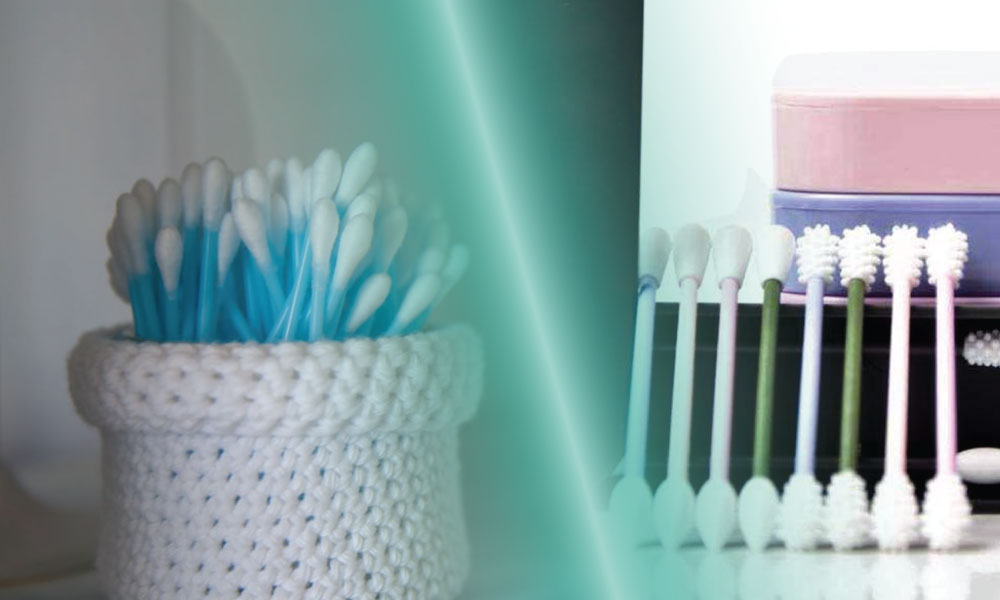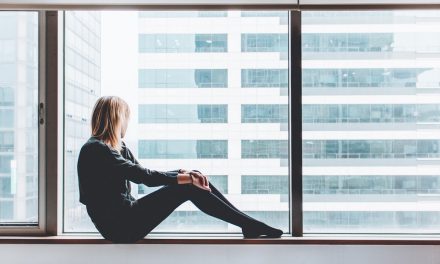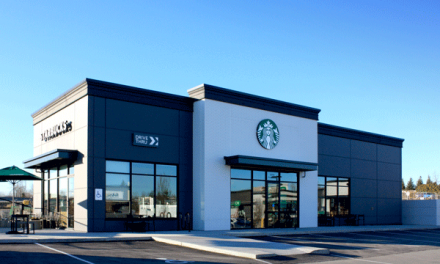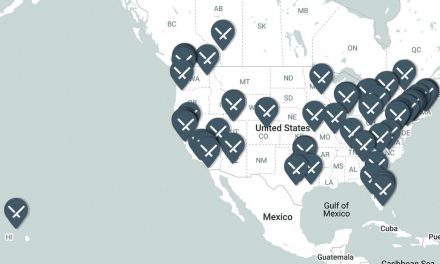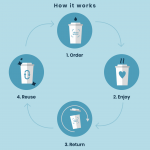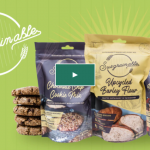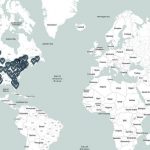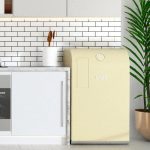The biggest plot twist of 2020 was when COVID-19 swooped in to bump environmental sustainability down to number two on the list of global priorities. Just six months after the historical climate marches in 2019, restaurants and cafes began rolling back BYOC (bring your own cup/container) initiatives and supermarkets began refusing personal grocery bags in favour of single use disposables. While understandable in the context of reducing the risk of transmission, these actions are allowing more plastic waste to enter our ecosystems than ever. Plus, that’s not to mention the heaps of face masks and plastic gloves finding their way to the litter piles of public spaces, let alone landfills.
Now is the perfect time to shift our attention to how we can become more responsible consumers at home. Consider swapping some of your household items for these eco-friendly alternatives, many of which can be easily found locally.
1. Plastic Dental Floss → Refillable Corn Silk Floss
Did you know there’s a plastic-free version of dental floss? Created by KMH Touches, Flosspot Gold is a brilliant innovation packed in a tiny refillable mason jar or stainless canister. It’s made with natural corn fibre and is USDA certified and vegan. Find it at the Soap Dispensary in Vancouver or various online retailers.
2. Bottled Shampoo/Conditioner → Shampoo/Conditioner Bars
Bottled shampoo is pretty much old school now. Shampoo and conditioner bars have gained popularity in recent years, as they are a plastic-and-chemical-free option compared to regular hair care products. Of course, you can find these at the beloved Soap Dispensary, or you can try them at Salt Spring Soapworks on Salt Spring Island, Plenty + Spare on East Hastings, and Rocky Mountain Soap in Metrotown.
3. Q-Tips → EcoSwab
Billions of cotton swabs are thrown away and end up in our oceans each year. Consider using EcoSwab instead, a silicon-based alternative. Get it and other eco-friendly body care products at The Refill Stop in downtown New Westminster.
4. Sponge → Swedish sponge cloth
Let’s be honest, not only are sponges contributing to the growing waste in our landfills, they’re pretty gross. An easy swap would be to use Swedish sponge cloths instead. They’re made with a mix of cellulose and cotton so they can be composted. Plus, the ones from West Coast Mamas come in cool designs!
5. Yoga Mat Spray → DIY Yoga Mat Spray
DIY natural cleaners are a great alternative for commercial cleaners. They don’t require any toxic chemicals, so they’re safe for the environment PLUS any pets or children who may live in your house. Check out this simple recipe for a DIY yoga mat spray created by Vancouver-based eco-blogger, Leah Stella Payne.
6. Wax Candles → Soy Candles
Swap those Bed, Bath, and Beyond candles for a natural soy candle. Mala the Brand is a young, Vancouver-based startup that goes the extra mile by using the most basic natural ingredients: wood wicks, essential oils, and repurposed tins. Customers can also return 10 used candle tins to be repurposed and get $1 off their next purchase. And, it gets better–Mala the Brand is partnered with Tree Era and Plant the Peace, so a tree gets planted for every purchase.
7. Laundry Detergent → Laundry Soda
Nellie’s Laundry Soda works just as well as regular laundry detergent but is much easier on the local water system. All of Nellie’s cleaning products are biodegradable and hypoallergenic. You can find them at London Drugs, Choices Markets, Whole Foods, IGA. Or, you know, get in bulk at Costco.
8. Bug Repellent → Diatomaceous Earth
Need some bug repellent for those pesky ants during the summertime? You can use a bottle of bug spray that contains 100 harmful toxins and chemicals… or you can use good ol’ dirt. Diatomaceous earth is a fine, naturally occurring powder that is abrasive to insects; it basically severely dehydrates them until they wither into a husk. How’s that for effective? A cup of this costs just a few dollars at the Soap Dispensary.
9. Paper Coffee Filters → Cotton Coffee Filters
(Almost) everyone loves a cup of coffee in the morning, but there is an environmental cost to every cup of brew. Try using a reusable cotton coffee filter from BC-based Eco-Freako to minimize paper waste and save more trees from turning into coffee filters!
10. Cling Wrap → Beeswax Wrap
Beeswax wraps are made with cotton, jojoba oil, and, of course, beeswax, making them a much more eco-friendly product than plastic wrap. Goldilocks Wraps and BeeKind are two women-led companies that create biodegradable beeswax wraps in Vancouver. BeeKind is partnered with Surfrider Pacific Rim and The David Suzuki Foundation, so a portion of BeeKind’s profits go toward marine conservation initiatives.

